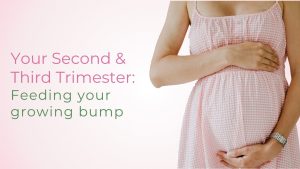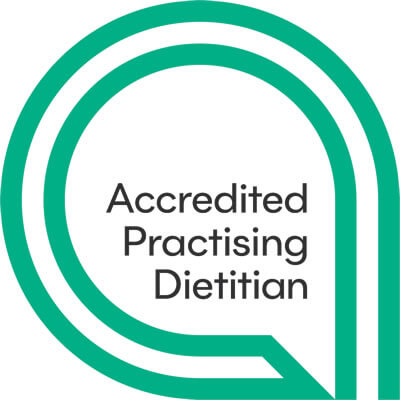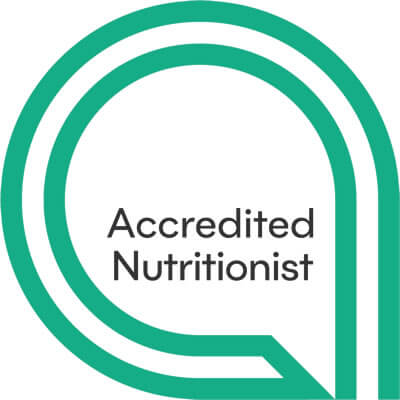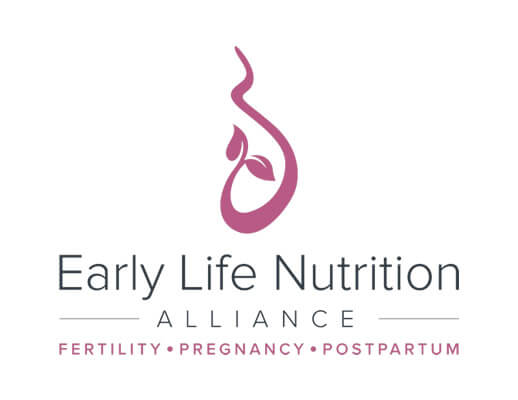Iron… Fueling Your Baby's Growth and Well-being
Did you know that iron plays a superhero role in your little one's health? Babies need more iron than adults due to their rapid growth and development. Surprisingly, 9 out of 10 infants aged 6-12 months fall short of their recommended daily iron intake, potentially affecting their growth and health, as revealed in a nationwide nutrition survey by Sahmri.
As a dietitian, I can't stress enough the importance of iron in the diet of your growing baby. This mighty mineral is not just another dietary requirement; it's a foundational building block for your baby's future. Iron's role extends beyond just making those tiny muscles stronger; it's integral to cognitive development, setting the stage for learning, memory, and even emotional health.
Let's explore this concept further.
The Role of Iron in Growth and Cognitive Development between 6-12 months of Age
Think of iron as the fuel that powers the engine of growth and brain development in your baby. This essential nutrient is key to supporting a range of bodily functions in the early years from birth to two years of age, including enhancing the immune system and promoting energy generation. Iron plays a big role, especially when it comes to making haemoglobin and myoglobin. These are important because they help carry oxygen all around your body and to your muscles, which is fueling your body's engine. Iron also plays a major role in helping your body make enzymes. These enzymes are behind-the-scenes supporting your baby's brain development, helping cells grow, boosting mental development, and keeping the body's energy processes running smoothly. As you can see, iron is fundamental to supporting growth and development on multiple fronts. Focusing on nutrient rich food choices is vital in this period of development.
Transitioning to Solid Foods: Meeting Your Baby's Iron Needs for Healthy Development
Infants are born with a reserve of iron passed on from their mother through the umbilical cord. By the time a baby reaches approximately 6 months old, their initial iron reserves begin to deplete, and breast milk alone may not be enough to fulfil the growing nutritional needs of your baby. This is the age that babies start transitioning to solid foods alongside breast milk or formula, introducing iron-rich foods becomes essential to meet their elevated iron requirements.
Insufficient iron during this crucial developmental period can impact brain function, affecting learning, memory, and behaviour. According to the Australian Infant Feeding Guidelines (NHMRC, 2013), it is recommended to start incorporating solid foods rich in iron from 6 months of age to ensure your baby meets their iron needs for optimal brain development.
Haem vs Non-Haem Iron
So where do we find iron in food? There are two primary forms:
- Haem iron, present in animal products, is readily absorbed by our bodies.
- Non-haem iron, found in plant-based foods, has a lower rate of bioavailability.
It's important for your baby to consume a diverse range of iron-rich foods daily to meet their iron needs.
Required Amount of Iron for a baby between 6-12 months
The recent OzFITS Study of Infants and Toddlers in Australia, Australian study published in the Journal of Nutrition has highlighted the challenges faced in meeting the iron intake recommendations for infants aged 6–12 months, especially among those exclusively breastfed. In Australia, the research found that 75% of infants in this critical age range consume less iron than the estimated average requirement of 7 mg, putting them at a heightened risk for iron deficiency. The study underscores that after 6 months, breastmilk alone is inadequate to satisfy the increased demand for iron, emphasising the necessity of incorporating iron-rich complementary foods . It also suggests that the use of iron-fortified products can be a vital strategy to improve iron intake.
- From birth to 6 months: a baby typically needs about 0.2 mg of iron per day, which reflects the amount obtained from breastfeeding.
- Infants aged 7-12 months: the estimated average requirement jumps to 7 mg per day (300g beef) while the recommended daily allowance shoots up to 11 mg/day. To put this into perspective, achieving the recommended intake would require consuming around 500g of lean beef mince.
Iron Rich Foods for Babies 6-12 Months
Haem Iron Sources (Easily Absorbed):
Fortified and iron-rich cereals and bread (around 4mg iron per 100g). Choose unsweetened and wholegrain varieties. Oats, Weetbix, infant cereals and semolina, and wholemeal fortified bread are good starting points
- Meat (beef, lamb, pork): (3mg iron per 100g), Ensure it's well-cooked, pureed or finely shredded and free of bones. Lean cuts are preferable.
- Eggs: (2.8mg iron per 100g) Hard-boil, mash, or scramble them, ensuring they're fully cooked.*
- Poultry (chicken, turkey): (1.4mg iron per 100g) Again these should be well-cooked, pureed or finely shredded, free of bones.
- Fish: (1.2mg iron per 100g) Fish is soft and easy to eat when shredded or finely mashed. It can be, fresh, frozen or canned (sardines, mackeral, tuna)*
Non-Haem Iron Sources (Pair with Vitamin C for Better Absorption):
- Lentils:(6.8mg per 100g), These are easy to eat whether mashed or blended.
- Beans: (3.3mg iron per 100g) These can also be mashed or blended or softly cooked and enjoyed as a finger food based on your baby’s skill level
- Tofu: (2.7mg iron per 100g) Silken or firm tofu is versatile as part of a meal or a finger food. *
- Dark leafy greens (spinach, kale):(2.7mg iron per 100g) Steam or blend well.
- Sweet potato: (0.9mg iron per 100g) Steam or roast until soft.
- Prunes: (0.7mg iron per 100g) Soak in warm water to soften.
*A word of caution: Egg, fish, wheat and soy are common food allergens . Introduce gradually to assess your baby’s tolerance first.
Pair iron-rich foods with those high in vitamin C to boost the body's absorption of non-haem iron. Capsicums, tomatoes, broccoli, citrus fruits, berries, kiwi fruit and other fruits as well as potatoes are fantastic additions to an iron rich meal .
Continue to prioritise your baby’s milk feeds (breastmilk.or formula)as the primary source of nourishment as solid foods serve as complementary additions to enrich your baby's nutrition.
Iron Myths and Facts
Myth: Infants can get all the iron they need from breast milk alone.
Fact: While breast milk is the ideal source of nutrients for infants under 6 months, it does not provide enough iron for babies aged 6-12 months. At this age, introducing iron-rich solid foods alongside breast milk is crucial to meet their growing iron needs.
Myth: Plant-based iron sources are just as effective as meat-based sources for infants.
Fact: Iron from plant-based foods (non-haem iron) is less bioavailable than iron from animal sources (haem iron). However, pairing plant-based iron sources with vitamin C-rich foods can enhance iron absorption. Plant-based foods also provide essential fibres necessary for your baby’s digestion.
Myth: Iron supplements are necessary for all infants to prevent iron deficiency.
Fact: Not all infants require iron supplements with most children able to meet their needs through adequate intake of a variety of iron rich foods. However, some infants, particularly those born prematurely or with low birth weight, are at risk for iron deficiency and will need supplements. Always consult a healthcare provider before starting supplements.
Myth: Offering iron-rich foods to infants can cause constipation.
Fact: While iron supplements can sometimes lead to constipation, iron from natural food sources is less likely to do so. Transitioning to solid foods can cause changes in your baby’s bowel movements, as the digestive system adjusts to solid foods as well as more fibre. It is important to consult with your healthcare provider should you have concerns.
Myth: Dairy foods cause iron deficiency anaemia
Fact: Dairy foods are an important component of a growing child’s food intake and contain protein, calcium and other key nutrients. Research is conflicting regarding the impact of calcium on iron absorption and appears to be greater from calcium supplementation rather than from calcium-rich foods. The major concern is overconsumption of milk in toddlers which has been associated with anaemia, as the large volumes of milk displace intake of iron-rich foods. For this reason, milk intake should be kept to 2-3 cups a day.
At Simple Steps Nutrition, we're committed to helping you navigate the complexities of your baby’s dietary requirements. From identifying iron-rich foods suitable for infants to understanding how to enhance iron absorption effectively, we'll cover all bases to ensure your little one thrives.
Further Reading
Sahmri Study on Iron - 9/10 infants not getting enough Iron
The Need for Iron Fortified Foods in Infants - Australian study published in the Journal of Nutrition.
National Library of Medicine- Why Iron Deficiency is important in infant development








